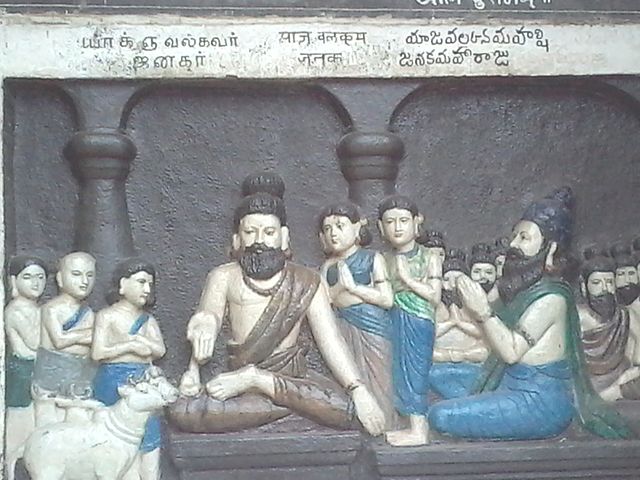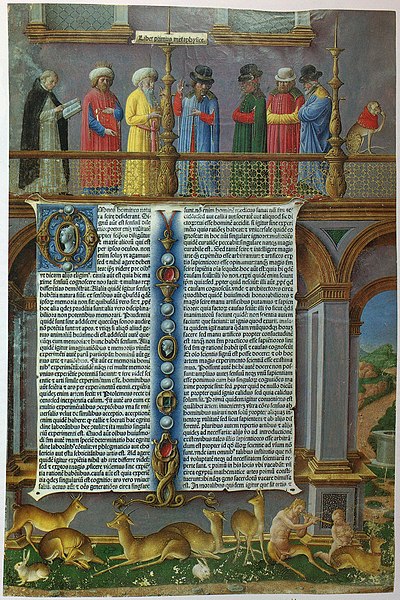Idealism in philosophy, also known as philosophical idealism or metaphysical idealism, is the set of metaphysical perspectives asserting that, most fundamentally, reality is equivalent to mind, spirit, or consciousness; that reality is entirely a mental construct; or that ideas are the highest type of reality or have the greatest claim to being considered "real". Because there are different types of idealism, it is difficult to define the term uniformly.
The Upanishadic sage Yājñavalkya (c. possibly 8th century BCE) is one of the earliest exponents of idealism, and is a major figure in the Bṛhadāraṇyaka Upaniṣad.
Śaṅkara, by Raja Ravi Varma
Statue of Vasubandhu (jp. Seshin), Kōfuku-ji, Nara, Japan
Wang Yangming, a leading Neo-Confucian scholar during the Ming and a founder of the "school of mind".
Metaphysics is the branch of philosophy that examines the basic structure of reality. It is often characterized as first philosophy, implying that it is more fundamental than other forms of philosophical inquiry. Metaphysics is traditionally seen as the study of mind-independent features of the world, but some modern theorists understand it as an inquiry into the conceptual schemes that underlie human thought and experience.
The beginning of Aristotle's Metaphysics, one of the foundational texts of the discipline
Immanuel Kant conceived critical metaphysics as the study of the principles underlying all human thought and experience.
David Hume criticized metaphysicians for trying to arrive at knowledge outside the field of sensory experience.
Boethius's theory of universals influenced many subsequent metaphysicians.








